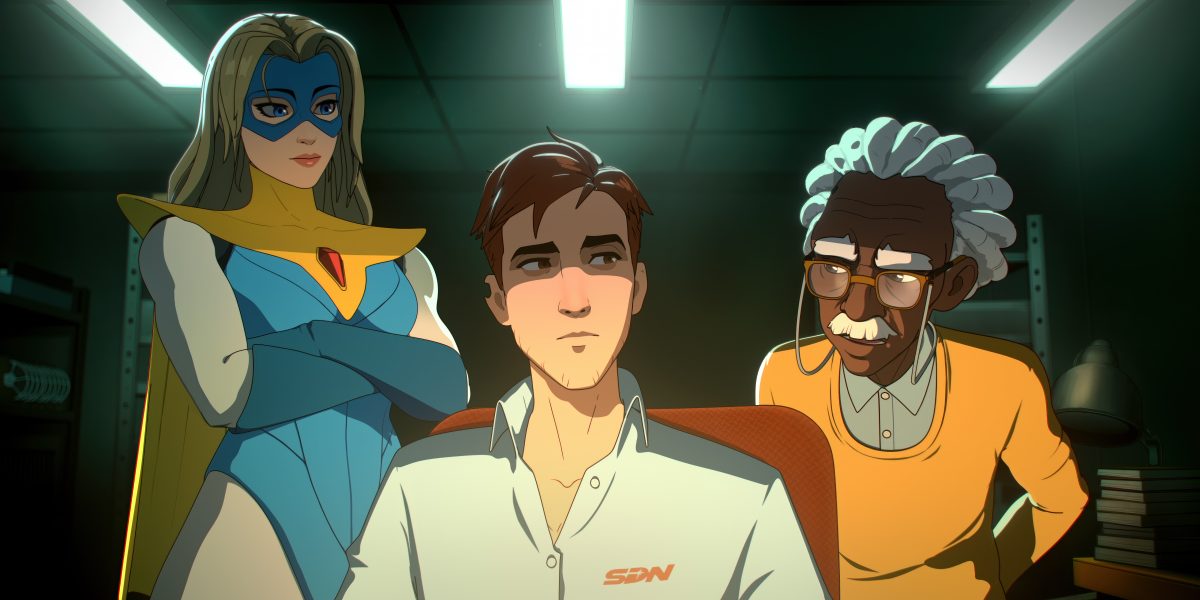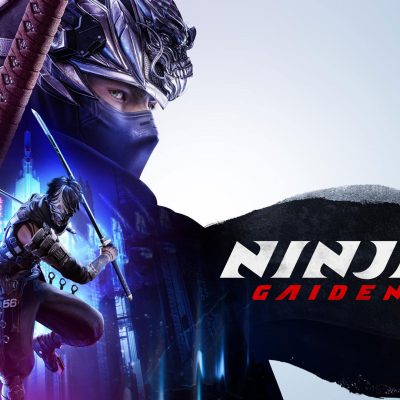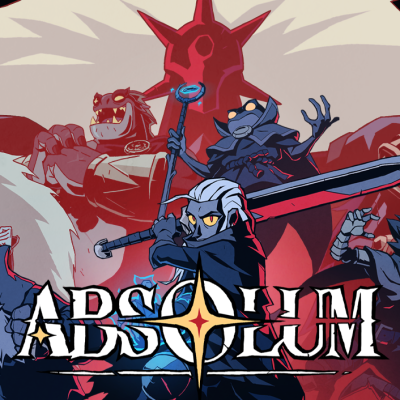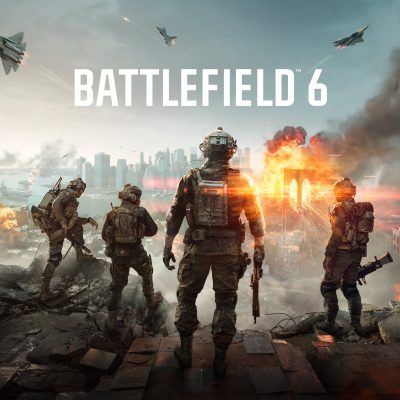I knew within the first hour that Dispatch wasn’t just reviving the Telltale-style of adventure and story telling; AdHoc has modernized it with a confidence I haven’t felt from this subgenre in years. On paper, the pitch sounds like a gimmick: a superhero workplace comedy where you don’t don the cape so much as coordinate the capes, managing who goes where and smoothing over office politics while your own past as a fallen mech-suit hero keeps bumping into the present. In practice, it’s a deftly tuned story engine that turns scheduling into drama, drama into humor, and humor into character—the rare narrative game that makes both the dialogue choices and the downtime systems sing in harmony. It also helps that the release structure leans into TV’s cadence; Dispatch arrives as an eight-episode season delivered over several weeks, and the format works because the writing respects the cliffhangers it sets up and pays them off with specificity rather than empty shock. The whole experience feels designed for evenings: one or two episodes, a perfectly measured arc, and just enough unresolved tension to make me want next week to be right now.
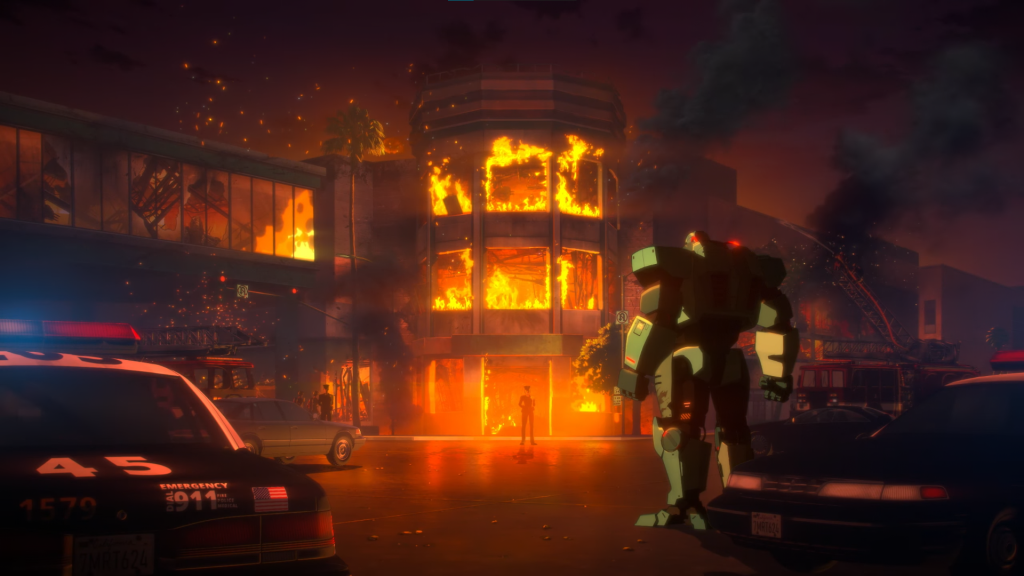
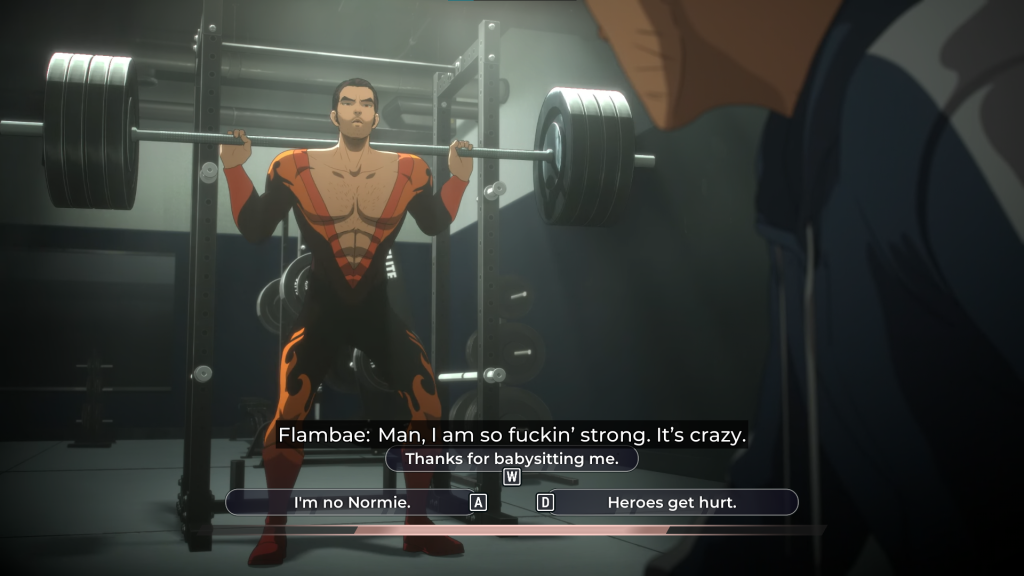
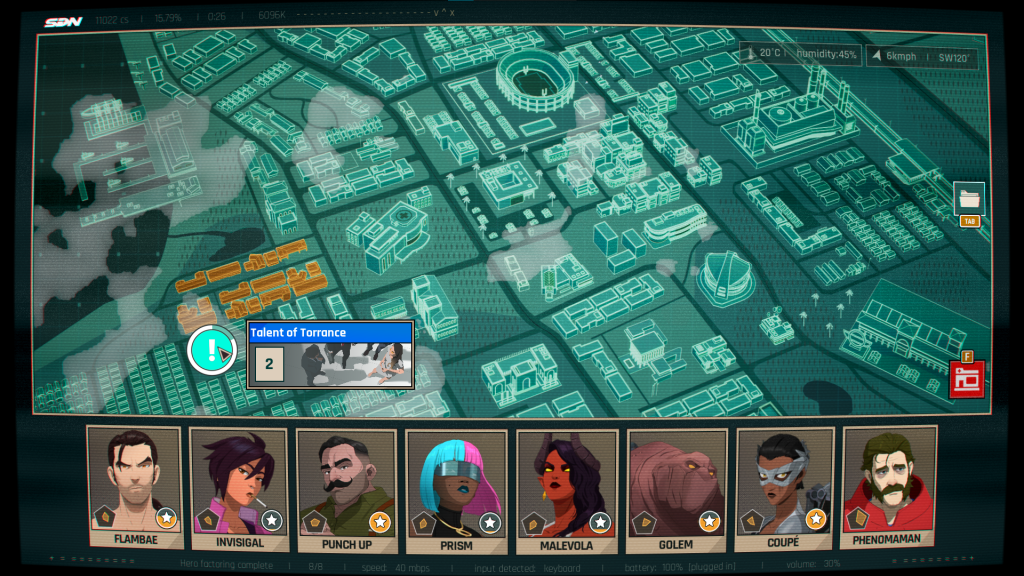
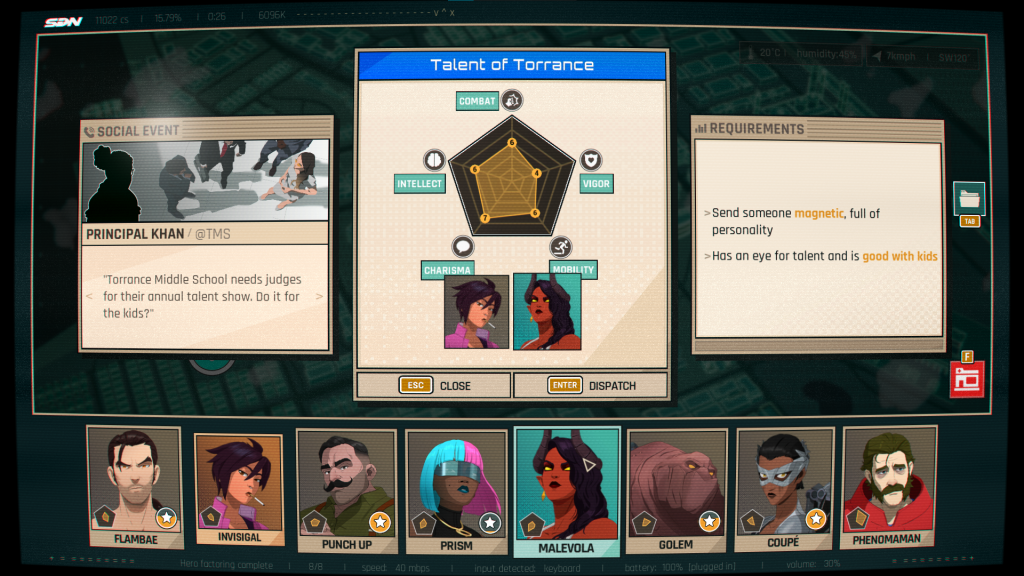
Dispatch frames heroism as a job and then lets the messiness of work and the people who do it drive the story. You play as Robert Robertson the third,, a mech-suit hero who was once famous and known as Mecha Man but is now coordinating capes from behind a console after a very public fall. That idea gives the season a clear structure: each episode starts with problems all over the city, but the real problems are between people. The pacing like that of a showrunner is helpful. Each week, there is a small mystery or moral knot—a PR disaster that threatens funding, a mentorship that goes wrong, or an ex-colleague who comes back with the long-buried truth about Robert’s last mission—and it gets solved just enough to keep the bigger stories moving forward.
The reason why this tempo works is that each episode does something a little different with your desk role. The dispatching loop is the main twist. It’s a top-down, time-pressured puzzle where alerts go off all over the city and you put your strange team together based on their skills, cooldowns, abilities, and your gut feeling as a manager. It may seem like a pointless mini-game to break up conversations at first, but it is, in fact, the backbone of the season. It’s quick, easy to read, and gets more complicated over the story. The problems it causes—sending the wrong person to the right problem or the right person to the wrong problem—are important to the story. I loved how a well-timed shift could earn me goodwill at work, but a poorly timed call could start a long-lasting grudge. I also loved how my growing understanding of the team’s strengths changed how I read the story scenes. There is a version of Dispatch that could have been a pure management game, and it would still be fun. The fact that the dispatching is only half the meal shows how well the two halves go together.
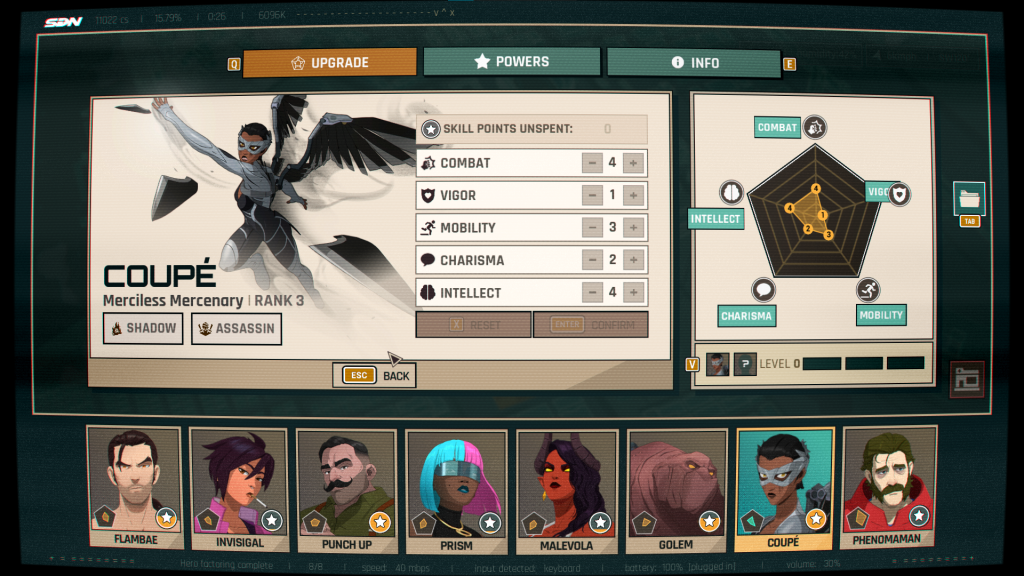
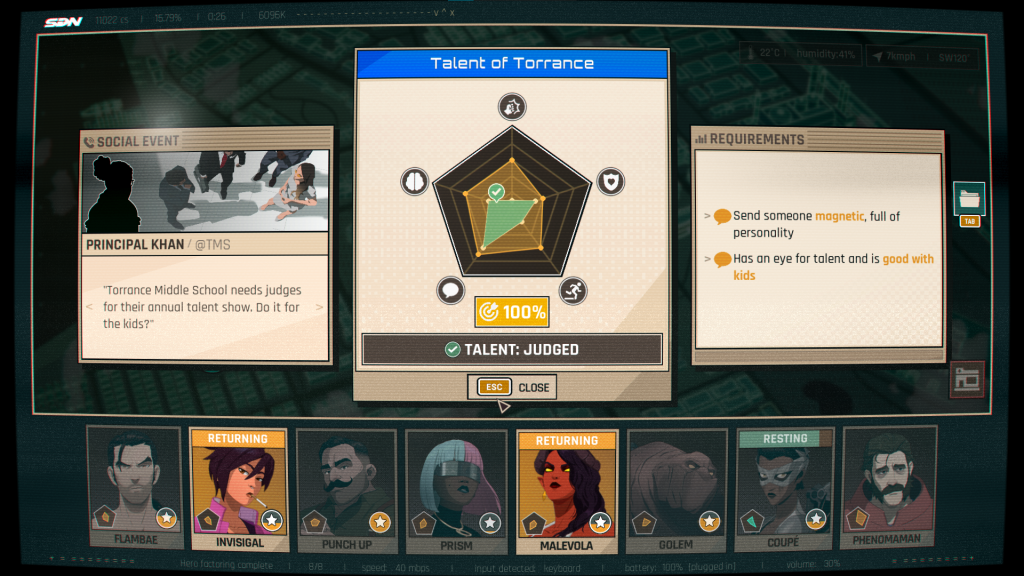
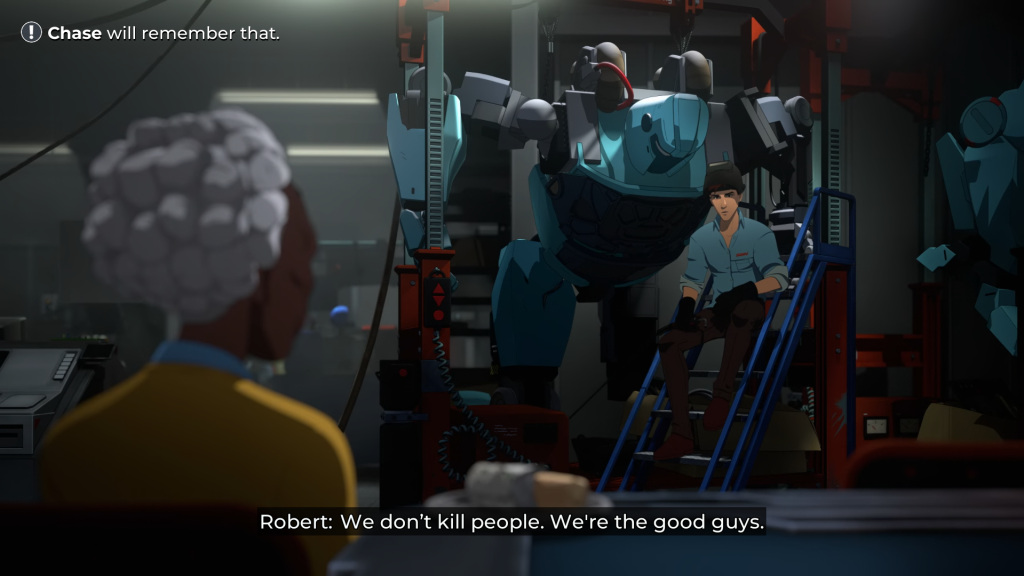
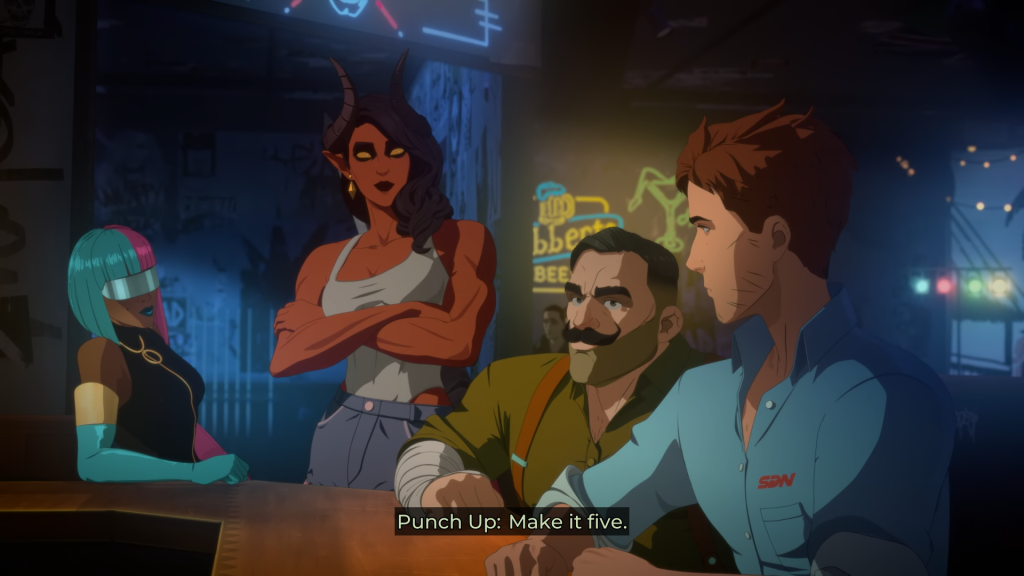
The other half is classic choice-driven drama, but with a deadpan sense of humor and a tone that knows when to switch from satire to sincerity. You are Robert Robertson III, who used to be Mecha Man but lost his job and traded his power armor for headsets and spreadsheets. That idea could have made Robert feel sorry for himself, but Dispatch doesn’t see him as a tragic figure. Instead, they see him as a working professional with a bruised ego and a stubborn streak who slowly learns that being useful isn’t the same as being central. It’s hard to write a main character who often sits on the sidelines without making them seem passive. The writers avoid that trap by letting your choices show what kind of leader you are. Will you run your floor like a strict scheduler, a caring friend, a sarcastic deflector, or a schemer who uses office rivalries to get things done? I felt like I owned that arc, and I did, even though the story never broke the illusion that I was watching a well-made season of TV that was taking my notes between scenes.
Performances sell it.. There are a lot of well-known voices in the game-big names like Aaron Paul, Laura Bailey, and Jeffrey Wright-and the timing of the delivery is like that of a great ensemble comedy. Even the small parts are interesting because the voice actors stick to the script, and the animators give them a snappy, expressive style that makes them look like a high-quality streaming cartoon instead of the stiff staging that has plagued this genre. I lost track of how many throwaway reaction shots made a joke go from good to great or a quiet apology go from okay to moving. The writing isn’t overshadowed by the cast, which is more important.
I like how Dispatch uses its episodic format to do three things. First, it creates a rhythm of escalation in the dispatching maps by adding wrinkles like citywide crises that get worse, time-sliced micro-objectives, and temporary debuffs that keep the plate-spinning tense without getting out of hand. Second, it changes the focus, giving each team member an “A” plot so that the group doesn’t get too mixed up. By the middle of the season, I knew exactly who was good at their job, who was too sure of themselves, who was too serious, and who was just pretending to be lazy until it was time to get down to business. Third, it gives you choices early on that seem like they don’t matter, but then, three or four episodes later, they turn into problems that seem like they were made just for you.
So, replayability is real. The dispatching puzzle is reactive, and the politics of the workplace are sensitive to how you’ve treated people. This means that episodes don’t just feel different when you take a new stance; they can also play differently at the map layer, forcing you to improvise instead of just optimizing. I had one run where I spent too much money on a pair of heroes who worked well together until they had a fight in the middle of the season and I had to scramble. In another, I chose to keep my professional boundaries over my personal ones, which made my floor work well but left me without friends when Robert needed help.
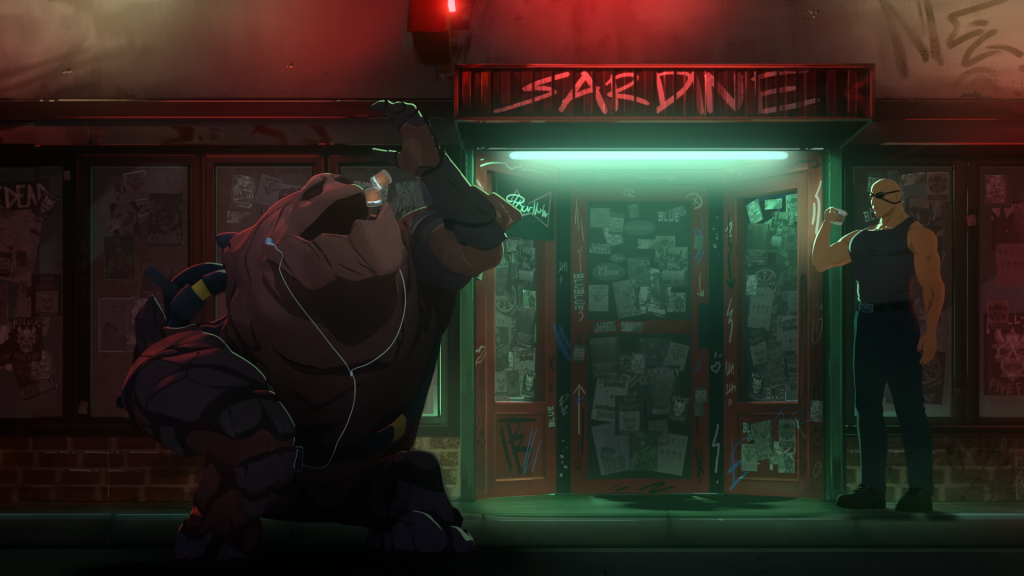
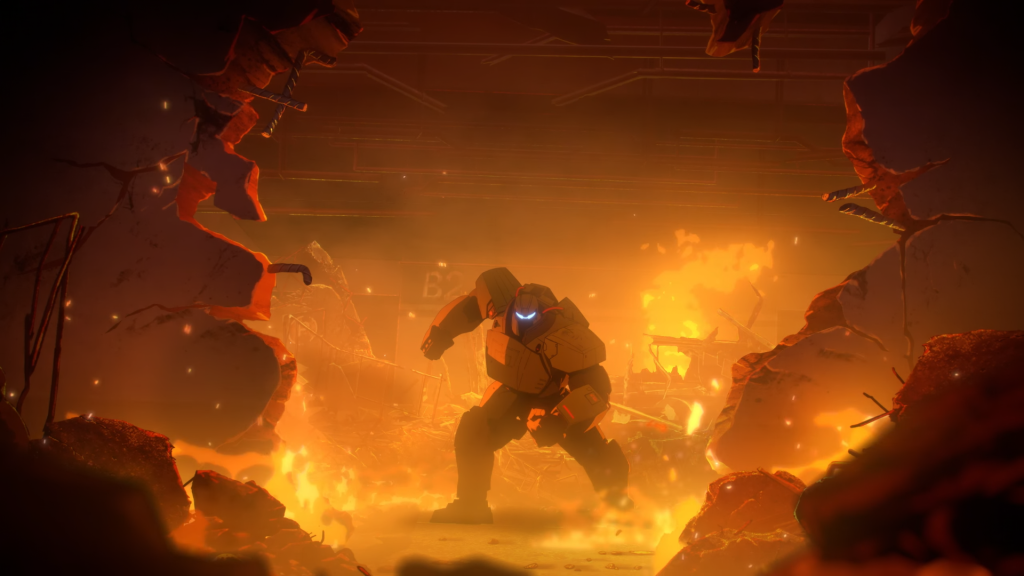
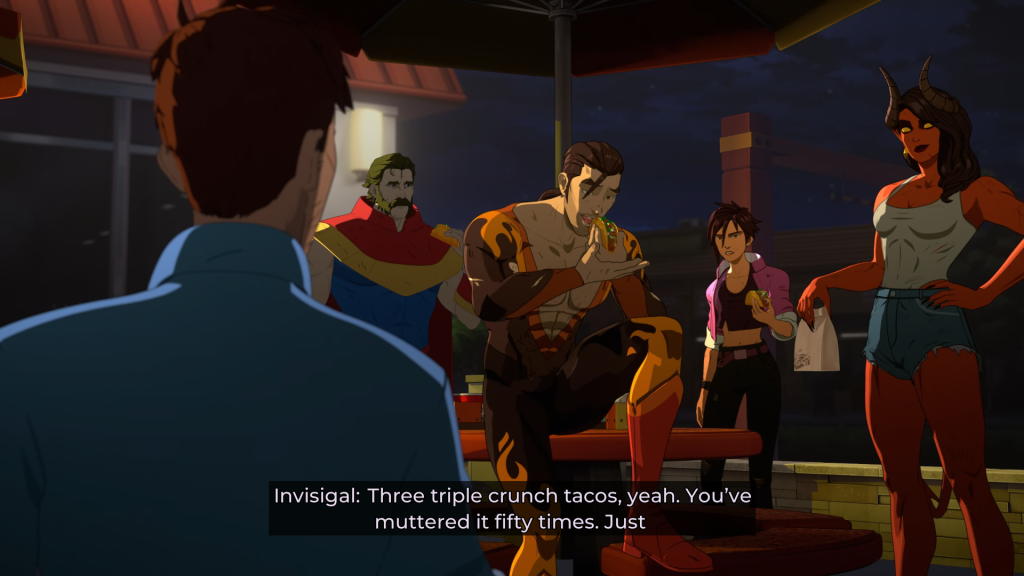
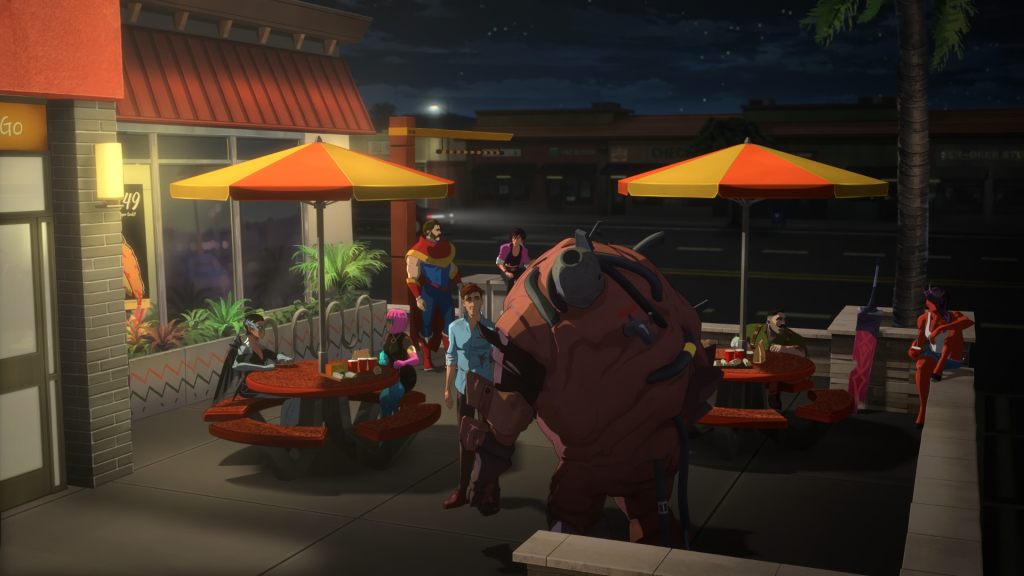
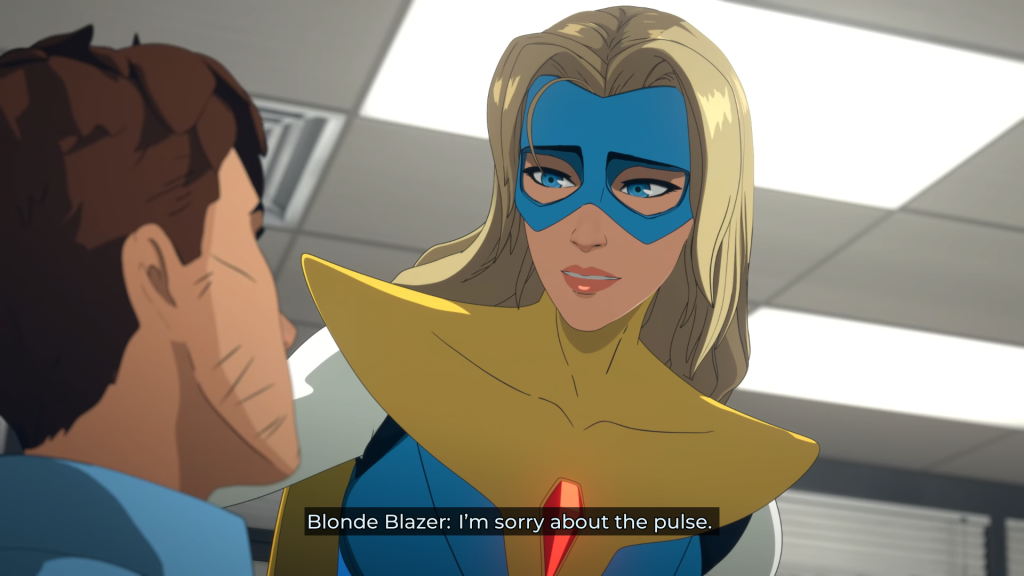
The quality of this product has always been high since the first episode. The art direction is just right, with the right amount of Saturday-morning clarity and prime-time polish. You can easily read the character silhouettes, the city maps show how important things are without making the screen look cluttered, and the UI respects your time with quick tooltips and context cues that make it feel fair to make split-second decisions about what to do. During map segments, the score uses a lot of propulsive cueing, and during dialogue scenes, it uses warmer, character-first themes. The audio team is also good at using silence like a drum fill. I played on both PC and PS5 and found both versions to be stable, with fast loading times and clean input response. The PC interface, in particular, benefits from quick-swap hotkeys and precise mouse movement when the alert feed spikes.
If there’s a place Dispatch occasionally stumbles, it’s in how neatly some arcs resolve inside their allotted episode runtimes. The weekly structure pushes for closure, and once or twice I felt a thread tie itself off a beat too quickly, as if the season needed to clear the deck for the next tentpole. I also wanted slightly more friction from the economy around upgrades and team management; the balancing is generous, which supports experimentation, but I wouldn’t have minded a harder-edged tough love setting that forces real tradeoffs.
Verdict
Dispatch wins because it understands that heroism is logistics, leadership is a style choice, and comedy lands best when it’s grounded in work you recognize. Across its first season, the writing keeps a steady hand on tone, pivoting from deadpan banter to honest vulnerability without whiplash, while the dispatch loop graduates from neat diversion to genuine heartbeat—quick to parse, tense under pressure, and closely braided with character consequences so my best managerial instincts matter later. Performances are uniformly sharp, the art direction is clean and expressive, and the episode cadence respects my time, delivering compact arcs that still seed longer payoffs. It isn’t flawless though. After 6 episodes, we can say that it’s possibly going to have a Season 2, and we can’t wait for that.



